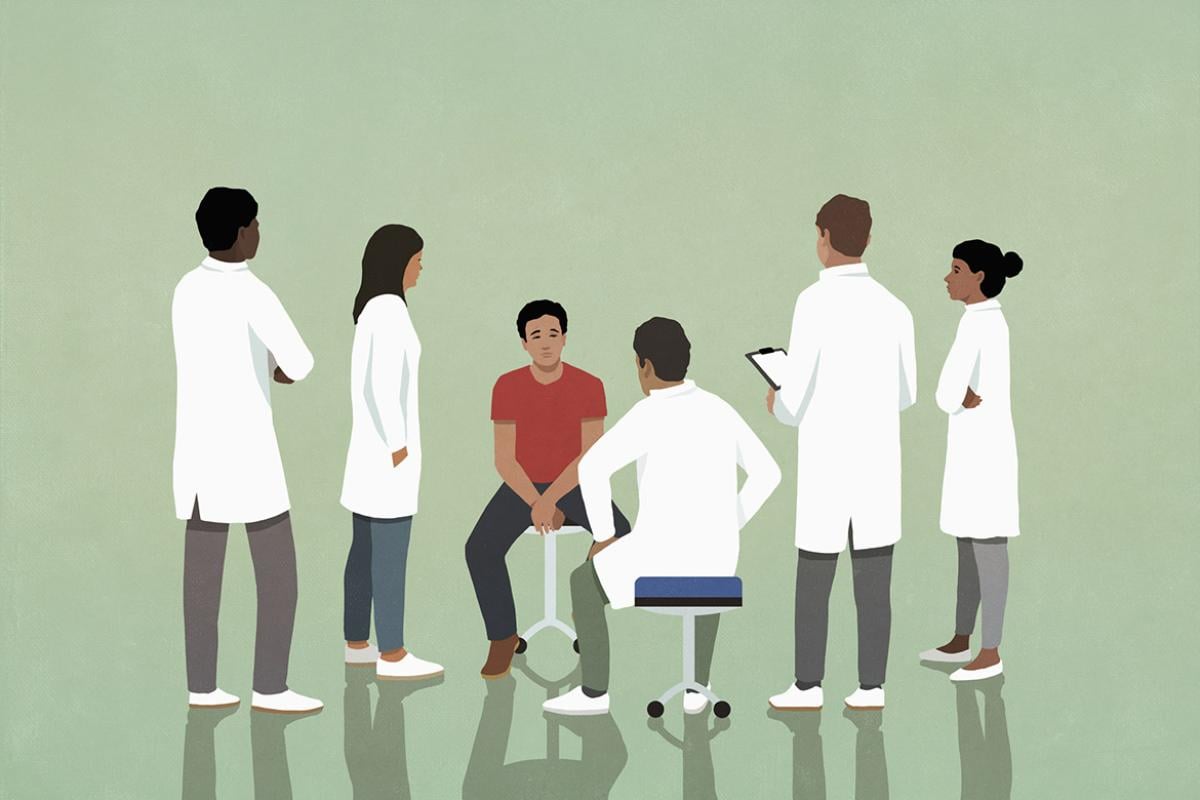The move from junior resident to senior resident marks a significant shift in training, from acolyte to leader. It is the stage at which physicians in training are transitioning to greater independence, and managing the shift successfully can be a challenge.
The AMA’s Facilitating Effective Transitions Along the Medical Education Continuum handbook looks at the needs of the next generation of physicians across the continuum of medical education. One chapter in the text looks at the transition from junior to senior resident. That portion of the book looks at five key domains—skill sets such as patient care and clinical knowledge—and the different approaches expected from senior and junior residents in approaching those areas.
That chapter’s co-author and a GME faculty member outlined all five key domains and the ways in which senior residents are expected to demonstrate increased expertise to excel.
Turn to the AMA Thriving in Residency series for timely guidance on making the most of your residency training. Get resources and tips about navigating the fast-paced demands of training, getting scientific research published, maintaining health and well-being, and handling medical student-loan debt.
Patient care
As a senior resident, you’ll take on the role of one who oversees the care provided by junior residents in addition to your own patient care responsibilities. In terms of the treatment of your own patients, you will see an increase in the level of autonomy you experience.
“We are trained to care for patients,” said Jana Wold, MD, an associate professor of neurology who co-wrote the textbook chapter on transitioning from junior to senior resident. “It’s what you spend most of your later years in medical school doing, so this evolution can come more naturally because it’s such a focus in training.”
Medical knowledge
With more autonomy comes an expectation that you will have a broad and thorough knowledge base to draw from as a senior resident.
“In the earlier stages of residency, you have a lot on your plate as far as clinical work and rely heavily on the knowledge of your senior resident and attending to fill in the gaps,” Dr. Wold said. “With that transition, you as a senior resident have to be that person with the knowledge base when it comes to things like clinical trials or guidelines.”
Professionalism
Your professional responsibilities expand as a senior resident, as do the expectations. There is the task of role modeling what professional behavior looks like, which is a key to senior residents mentoring junior colleagues, but then there are more basic areas that can prove to be a challenge. Following up is an area where Dr. Wold has seen some senior residents struggle.
“When you transition from the junior resident to the senior resident, there is an expectation that you will respond to administrative tasks in a more timely fashion,” Dr. Wold said. “A junior resident might do a good job responding to patient messages, but they may not spend as much time responding to messages from the residency coordinator or to members of their research team. With the senior resident, you need to be on top of the clinical care you are providing and also allocate time to out-of-hospital tasks such as research and scholarly work.”
Interpersonal and communication skills
As a senior resident, you will have a team of medical students and residents looking to you for guidance and education. That can be a frequent stumbling point, Dr. Wold says, simply because the medical school and residency curriculum lacks focus on leadership training.
“Figuring out how to delegate appropriately, what needs to be done by the senior resident, and when to truly allow a junior member on the team to own a task and complete it—that skill of delegation can be valuable,” Dr. Wold said.
Systems-based practice
Organizing your time and approach to daily tasks is important at any level of residency, but it takes on increased importance with the increased responsibility that senior residents take on.
Douglas McGee, DO, is enterprise lead for GME at Jefferson Health and vice dean for GME at Sidney Kimmel Medical College at Thomas Jefferson University. As part of ensuring residents are well-rounded, he said that a mastery of systems-based practice is key.
“Patient care and medical knowledge relate to treating individual patients,” Dr. McGee said. “But senior residents must also be confident caring for patients within the entire health care system—managing resources, navigating administrative procedures, and coordinating with multidisciplinary teams.”
A training institution and health system with more than 200 residency programs, Jefferson Health is a member of the AMA Health System Program that provides enterprise solutions to equip leadership, physicians and care teams with resources to help drive the future of medicine.
More on transitions in med ed
The AMA’s Facilitating Effective Transitions Along the Medical Education Continuum handbook looks at the needs of learners across the continuum of medical education—from the beginning of medical school through the final stage of residency. This book was published by the ChangeMedEd Consortium.
The learner sections help medical students and resident physicians acclimate to the various settings and expectations in the medical training environment. The faculty sections then provide blueprints for transition programming, as well as resources to help students and residents navigate challenges in transitions. Download the handbook now (PDF).



